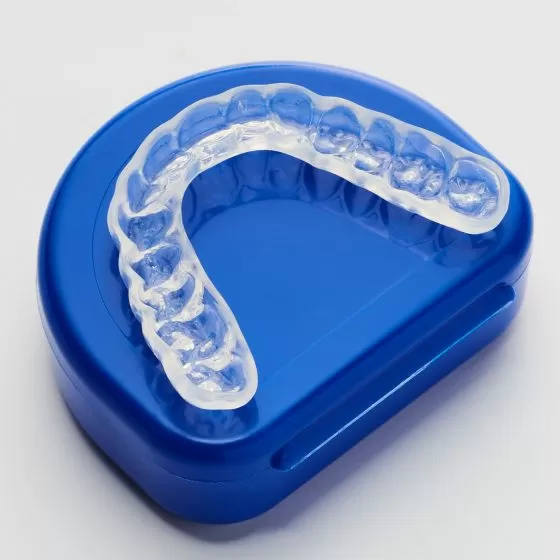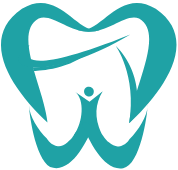How Often Should I Replace My Toothbrush?
Our mouths and indeed our teeth are one area in our bodies that is constantly exposed to germs and bacteria. As a result, our gums and teeth need extra care and protection to ensure they are healthy. That is why any dentist would recommend brushing your teeth at least twice a day. But with the toothbrush so heavily used in our homes, the question is how often we should replace it.
Most people neglect to change their brushes. You would be surprised at how dirty and unhygienic a toothbrush can get over time. After all, it is constantly being rinsed, cleaned and stored, after every scrub, so how could it possibly get dirty?
First, I would like to point out that brushing teeth is not a marketing gimmick made up by the dental industry to make money. I hear a lot of people imply that other animals do not clean their teeth, so why should we? After all, the body has its own oral cleaning regimen. But you would be surprised to know most animals actually clean their teeth as well. Crocodiles, for example, swim with their mouth open so that the water pressure can clean the teeth. They later bask in the sun with their mouths open to dry their teeth while tiny birds called plovers feed on the stubborn food that remains on the crocodile’s teeth. Furthermore, most mammals, including carnivores, eat plant matter with high fiber content to help clean their teeth. As you can see, clean teeth is just not a human thing; it cuts across the board irrespective of the animal species.
To top it off, our diet as humans has evolved, needing the body to break down more complex and sugary food. As a result, we need to better care for our teeth as opposed to other animals who don’t eat processed food.
When Should You Change Your Toothbrush?
Changing the toothbrush is one of the most common questions asked about oral health. Most dentists would recommend changing your toothbrush after every 3 months. But like many things, this answer is not as straightforward as it appears. There are many factors that affect how often you should change your toothbrush.
Age: Most toddlers have a weaker immune system, meaning if there is a build-up of bacteria on the toothbrush, they are more likely to be affected. This suggests that younger people should change their brushes more often. On the other hand, older people have weaker gums and teeth, and as your toothbrush ages, the bristles may become harder, leading to gum and tooth injury. As a result, older people should change their brushes more often.
Type of toothbrush: There are two main types of toothbrushes, the electric and manual toothbrushes. An electric toothbrush needs to be replaced less often. However, the head still needs to be replaced at least every three months as well. The quality of the type of toothbrush also affects how often you should replace it.
Why Should You Replace Your Toothbrush?
It may seem obvious to some why replacing your brush is an excellent oral hygiene practice, but let us look in detail at why it is so important. Wear and tire is the first and most obvious reason you should replace your toothbrush. As the brush gets older, and as you use it, the bristles break down. This can result in either hardening or softening of the bristles, depending on the type and make of the brush.
If the bristles harden, they can injure your teeth and gum, exposing your mouth to germs, leading to infections like gingivitis. If the bristles soften, they may be too weak to clean your teeth and gums effectively, inevitably leading to bacteria and germs build up. As a result, the bacterial build-up can lead to gingivitis and other tooth infections. As you can see, whether the bristles harden or soften, the effects are still similar.
Bacteria can survive almost anywhere. Now imagine how much they can thrive in an area where they receive food, water, darkness, and little disturbance. This is an environment essentially provided by a used toothbrush. If not cleaned correctly, a toothbrush can retain plenty of food particles. Since the brush is still wet, two conditions that help bacteria thrive are already met. Furthermore, once you store the brush, you provide darkness and less disturbance, meeting the other conditions that bacteria thrive in. These bacteria can be harmful and infect you, leading to not just oral health issues but can lead to other unrelated illnesses.
Most people who don’t live alone probably store all the brushes in one cup or location. Most of the time, we leave our brushes uncovered, and the bristles from different brushes touch each other. This creates an avenue where bacteria from one person’s brush can move to another. As a result, you may find people living together suffering from the same tooth condition or other ailments and get puzzled as to why. The simple reason may be that one person’s infection was transferred to the other through the bacteria on the bristles.
Storing and cleaning your toothbrush is very important. As we have mentioned, it is essential to properly wash, rinse and dry your toothbrush to reduce food and bacteria build up after use. However, how you store it is also crucial. You might clean it perfectly then store it in the bathroom uncovered. As a result, there may be some splash when you flush your toilet. The tiny water and particles found in toilet water may splatter on your brush leading to its contamination. Most dentists recommend that you do not store your toothbrush in the bathroom and if you do, make sure it is covered.
How To Take Care Of Your Toothbrush
Even though you should change your toothbrush after every 3 months, this is no excuse not to take care of it properly. First, you need to ensure you do not share your toothbrush with anyone, be it your partner or a close family member. This way, you can be sure that there is no germ or bacterial transfer from one mouth to another.
Second, you need to cover the head of your toothbrush after properly washing, rinsing, and drying it to reduce any contact with bacteria. As you can see, your toothbrush plays a vital role in your oral teeth hygiene. But you should always seek a professional opinion from us here at Woodcreek Family Dentistry. Visit us today or check out our website https://woodcreekdentistry.com/ for further details about our chipped tooth repair in Katy.
Woodcreek Family Dentistry
4650 S FM 1626 #104
Katy TX 77494
2814082222
Find us on Social Media
Social accounts
https://www.facebook.com/WoodcreekFamilyDentistry/
https://linkedin.com/company/woodcreek-family-dentistry/ https://www.youtube.com/channel/UCHIp9G8LRcKWlmiPOAOImJg
https://www.instagram.com/woodcreekfamilydentistry/






